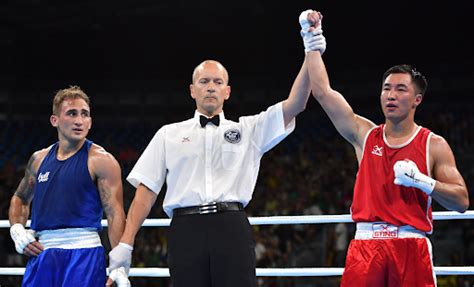How Do I Become A Boxing Referee
Ronan Farrow
Apr 04, 2025 · 4 min read

Table of Contents
How to Become a Boxing Referee: A Comprehensive Guide
So, you dream of standing center ring, commanding the action, and ensuring fair play in the sweet science? Becoming a boxing referee is a challenging yet rewarding path. It requires dedication, skill, and a deep understanding of the sport. This guide will walk you through the steps necessary to achieve your goal.
1. Understanding the Role of a Boxing Referee
Before you even begin to think about applying, it's crucial to grasp the responsibilities of a boxing referee. It's far more than just counting to ten. Referees are responsible for:
- Enforcing the rules: Knowing the rules inside and out is paramount. This includes everything from fouls (holding, low blows, hitting on the break) to judging the effectiveness of punches and determining knockdowns.
- Maintaining order: The referee is the ultimate authority in the ring. They must control the boxers, ensuring fair fighting and preventing unnecessary aggression or stalling.
- Protecting the boxers: The referee's primary concern is the safety of the fighters. They must be vigilant in spotting signs of injury or exhaustion, and stopping the fight if necessary.
- Making fair decisions: Quick, accurate, and impartial decision-making is vital. Your judgments will directly impact the outcome of a fight and the boxers' careers.
- Managing the fight: This involves keeping the pace of the fight, monitoring the time, and interacting professionally with the boxers, their corners, and the judges.
2. Gaining Experience and Knowledge
Becoming a boxing referee isn't something you achieve overnight. It takes time and consistent effort. Here's how to gain the necessary experience and knowledge:
A. Develop a Deep Understanding of Boxing:
- Watch boxing religiously: Study the sport intensely. Pay attention to technique, strategy, rule infractions, and refereeing decisions. Analyze professional fights and learn from experienced referees.
- Take a boxing class: First-hand experience will give you an appreciation for the physicality and intensity of the sport. This also helps you understand what it feels like to be a boxer.
- Read boxing literature: Explore books, articles, and rule books to build a strong theoretical foundation of boxing rules and regulations.
B. Networking within the Boxing Community:
- Attend boxing events: Network with promoters, judges, referees, and other boxing professionals. This can open doors to mentorship opportunities.
- Join boxing organizations: Many regions have local boxing organizations or associations. Joining these groups will allow you to connect with professionals and learn about opportunities.
- Seek mentorship: Finding a mentor who's an established boxing referee can be invaluable. They can provide guidance, feedback, and insights into the profession.
3. Obtaining Certification and Licensing
The process for becoming a certified boxing referee varies by location. Generally, you'll need to:
- Meet specific requirements: This might include age limits, background checks, and medical clearances.
- Complete a referee training program: These programs cover rules, regulations, safety protocols, and practical refereeing skills. The program will often culminate in a written or practical exam.
- Obtain a license: Upon successful completion of the training program, you will be eligible to apply for a license from your local or state athletic commission.
4. Gaining Experience as a Referee
After obtaining your license, you'll need to start refereeing amateur fights to gain experience. This crucial step will help you develop your skills and confidence before moving on to professional bouts. Remember to always:
- Stay calm and focused: Maintain composure even under pressure.
- Be decisive and fair: Make quick decisions based on the rules and your observation of the fight.
- Continuously learn and improve: Seek feedback from experienced referees and use every opportunity to refine your skills.
5. Aspiring to Professional Boxing Refereeing
Once you've gained significant experience in amateur boxing refereeing, you can aim for the challenging yet rewarding field of professional boxing refereeing. This often requires demonstrating proficiency, consistent accurate judgments, and a strong reputation within the boxing community.
Becoming a boxing referee is a journey that requires passion, commitment, and dedication. By following these steps and embracing the challenges along the way, you can potentially achieve your dream of standing center ring, ensuring a fair and exciting fight for all. Remember, continuous learning and improvement are key throughout your career as a referee.
Featured Posts
Also read the following articles
| Article Title | Date |
|---|---|
| How Do I Heal My Soul | Apr 04, 2025 |
| How Far Apart Should You Plant Pine Trees | Apr 04, 2025 |
| How Do You Qualify For Senior Housing In Colorado | Apr 04, 2025 |
| How Do We Use A Concrete Float In Agriculture | Apr 04, 2025 |
| How Do Dealerships Protect Cars From Hail | Apr 04, 2025 |
Latest Posts
Thank you for visiting our website which covers about How Do I Become A Boxing Referee . We hope the information provided has been useful to you. Feel free to contact us if you have any questions or need further assistance. See you next time and don't miss to bookmark.
